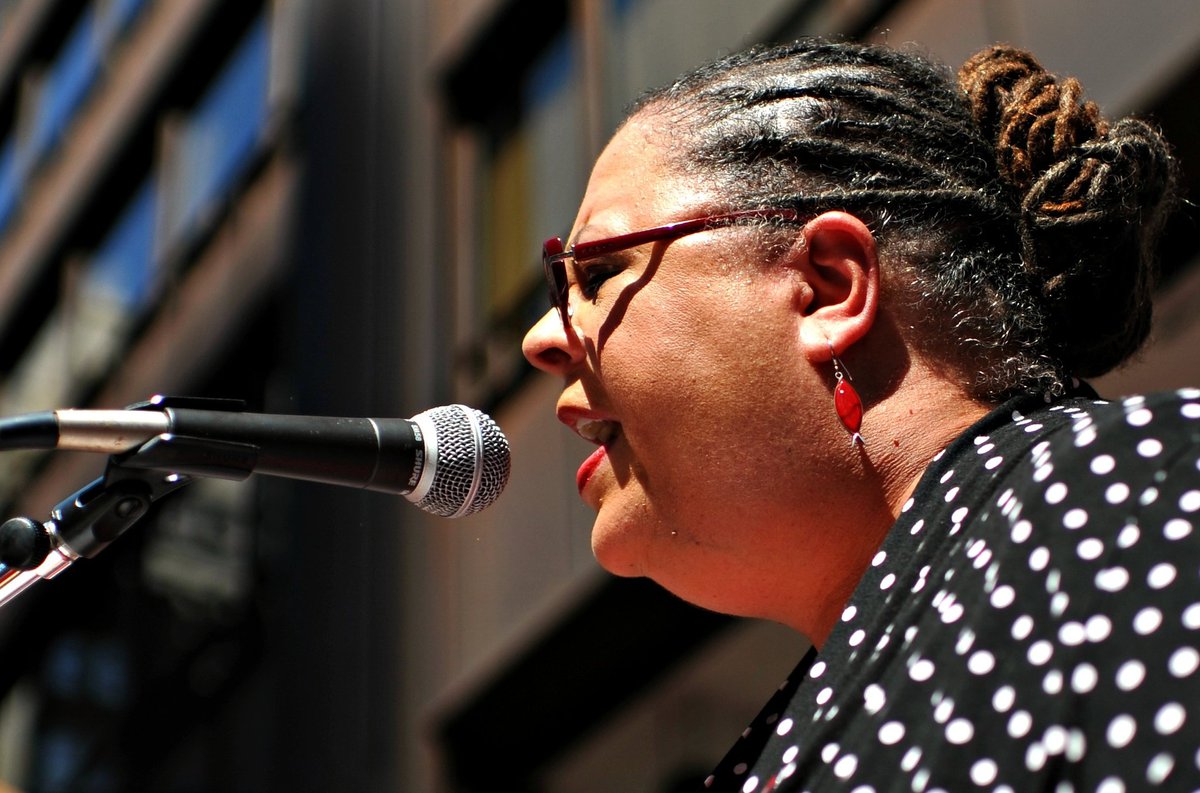

Karen Lewis, the renowned Chicago educator and activist best known for her leadership as president of the Chicago Teachers Union (CTU) during the historic Chicago Public Schools (CPS) nine-day strike in 2012, lived a tremendous life. Her leadership and organizing strategies built the CTU into a strong progressive, community-based force and inspired a wave of teachers strikes across the country. Now, four years after her death from brain cancer, I Didn’t Come Here to Lie tells the story of Lewis’s life and education, in her own words.
In the book’s foreword, cowriter Elizabeth Todd-Breland and editor Jill Petty note that the memoir is largely drawn from recorded interviews and conversations that took place over more than a dozen visits with Lewis between 2017 and 2020. The book’s conversational nature makes Lewis’s wit, wisdom, and passion for the future of Chicago students and teachers leap off the page.
I Didn’t Come Here to Lie: My Life and Education
By Karen Lewis with Elizabeth Todd-Breland
Haymarket Books, 221 pages
Release date: March 25, 2025
Lewis grew up in Chicago’s Hyde Park during the 1950s and 1960s. Her first years as a student in the Chicago public schools were marked by adults telling her she was too bossy and too inquisitive, qualities which later became key to her success as an educator and union president.
While attending Kenwood High School in the late 1960s, she became involved in Chicago’s Black student movement, which was influenced by Black Panther Party initiatives such as the free breakfast program for schoolchildren on the West Side (as Lewis notes, it took CPS until the 2000s to provide its own free breakfast program for students). She says she became discouraged by the intersectional oppression she faced as a Black woman, not receiving equal respect from the young Black men or young white women she organized with. She also notes that the 1969 FBI-led assassination of Black Panther Party leader Fred Hampton in Chicago illuminated the dangers facing Black organizers, and forced her and others to pause their activism for a time..
At sixteen, Lewis left Kenwood High School and enrolled in Mount Holyoke College, a women’s college in Massachusetts which she found both affirming as a woman and academically rigorous. When she transferred to Dartmouth College two years later, however, her college experience took a turn. “Dartmouth was a really bad experience for me,” Lewis told Dartmouth Alumni Magazine in 2011, “but it made me stronger. I was the only Black woman in my class, and it was clear that women weren’t wanted. That did teach me that top-down decisions usually take a while for people to buy into.”
After college, Lewis moved to Tulsa, Oklahoma, and married her first husband. She then moved to Barbados, and later back to Chicago, where she enrolled in medical school although subsequently dropped out. Only then did she find her way to teaching, the profession of both of her parents. She taught chemistry at two different North side high schools, meeting her second husband, fellow educator John Lewis, at the second, before transferring to Dr. Martin Luther King Jr. College Preparatory High School on the South Side.
About halfway through the book, a chapter titled “My Faith” delves into an aspect of Karen Lewis of which many who watched her lead the CTU were not aware: her conversion to Judaism beginning in the late 1980s. The question of Palestine caused inner conflict when it came to her faith, and she writes that she was not a Zionist. Lewis draws direct lines from the teachings of Judaism to the oppression and domination brought about by racism and poverty in Chicago. Her life of righteousness, as she puts it, was guided in tandem by her faith and her belief that people are inherently equal.
The second half of the book is largely devoted to Lewis’s rise to the presidency of the CTU, the organizing and tensions that led to the 2012 strike, and the union’s going head-to-head with former Chicago mayor Rahm Emanuel during his attempts to corporatize education in Chicago and Illinois. The backdrop of these events are the infamous school closings in Chicago in 2010 and 2013, and Todd-Breland expertly weaves in additional context from the histories of CPS and school policy in Illinois. The 2013 closing of fifty Chicago public schools by Emanuel’s administration has not been forgotten, and Lewis makes the reader keenly aware of the extent of the reverberations of these closings upon students and communities.
After the success of the 2012 CTU strike, Lewis was laying the groundwork to unseat Emanuel before her health problems and cancer diagnosis made her mayoral campaign impossible. In the book’s afterword, current CTU president Stacey Davis-Gates makes the case that Lewis’s legacy lives on in Chicago mayor Brandon Johnson, a former CPS teacher and CTU organizer.
Beyond telling a fascinating and sometimes winding story of a person finding their passion and purpose, I Didn’t Come Here to Lie gives readers insight into what influenced Lewis’s decisions and strategies during one of the most pivotal moments in education policy in the twenty-first century so far.
The love that Lewis had for her students, her fellow advocates, and the city of Chicago becomes visceral through this book. Inspiring, funny, informative and heartwarming, the release of I Didn’t Come Here to Lie is a tribute to Lewis’s life and impact, and proof that we all can make change if we turn to each other with love, understanding, and a drive to make the world better.






